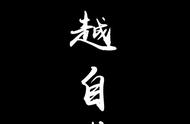
must的用法
1.表示义务
在肯定句中表示必须,一定,在否定句中mustn't表示禁止,不许。
Every students must obey the school rules.每个学生都必须遵守校规。
You mustn't smoke in the hospital.你不许在医院里吸烟。
在一般疑问句中,肯定回答用must,否定回答一般用needn't或don't have to。
--Must I set off now?我必须现在出发吗?
--Yes, you must. No, you needn't / don't have to.是的,你必须。/不,你不必。
2.表示推测
must表示说话人有把握的推测,意思是肯定,一定。只能用于肯定句中,否定的推测用can't/couldn't。对现在事情的推测用must be /must be doing,对过去事情的推测用must have done。
He must be a happy man, for he always smiles.他一定是个幸福的人,因为他总是面带微笑。
I guess he must be playing computer games in his room now.我猜他现在一定在房间里玩电脑游戏。
The street is wet. It must have rained last night.街道是湿的。昨晚一定下雨了。
He can't be at home now.他现在不可能在家。

3.表示强调
在口语中用来表示说话者坚定的态度。
I must say that you should make an apology to him.我认为你应该向他道歉。
I must admit that you did it well.我必须承认你做得很好。
4.表示非得,非要
往往表示不愉快的事情。
Why must you say so?你为什么非得这么说?
Why must you leave now?你为什么非要现在离开?
5.表示必然的结果
All men must die.人皆有一死。
If you get up late, you must be late for class.如果你起床晚了,你上课一定会迟到。
6.must与have to的区别
must表示主观要求,have to表示客观要求,意思是不得不,must没有时态变化,表示过去,将来或完成时,多用have to。
We must obey the laws.我们必须遵守法律。
It is going to rain. I have to go now.要下雨了。我现在得走了。
He has had to stay at home for a week.他不得不在家里待了一个星期。















